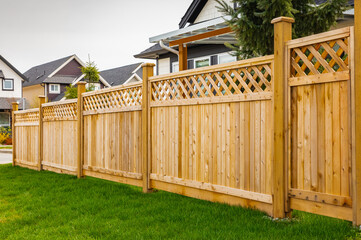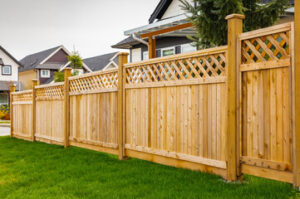During this appointment, you and the florist will discuss your vision for the day. They will also learn about what you want to spend and will help guide you in your decisions.
It’s a good idea to go into this meeting with a firm price range if not an exact number. Adding flowers or changing your mind can quickly drive your costs up. Contact Dallas Wedding Florist for professional help.
Floral designs and arrangements are major highlights of most weddings. That’s why choosing the right florist is crucial. A good wedding florist will be able to take your ideas and turn them into beautiful floral creations for your special day. They will also have the ability to provide advice on other decor items like vases, backdrops and table runners for a cohesive look on your big day.
When interviewing potential wedding florists, ask for photos of their previous work. This is a great way to get a feel for their style and aesthetic. You can also ask them to create a high-best case scenario and low-bare minimum proposal. This will help you figure out which package is right for you and your budget.
It’s also important to consider whether the florist is familiar with your venue. If they’re not, it could lead to some logistical issues on your wedding day. For example, they may not know how much space is available for centerpieces and other floral decor. Or, they might not have experience navigating the space and knowing how to best utilize the architecture of the building.
Besides creating bouquets, boutonnieres and centerpieces, a wedding florist can also design larger-scale floral installations for your big day. These can include aisle flowers, ceremony arches and floral backdrops. They can even decorate your dance floor with flowers and other decorations to make the room pop.
If you’re planning a large-scale wedding, it’s also a good idea to find out if the florist offers other services like preserving your bridal bouquet after the wedding or adding flowers to your cake. This can be an added cost, but it’s worth it if you want your flowers to last forever.
Look at their pricing.
Wedding flowers are a major focal point at most weddings and the right florist will be able to translate your vision into something breathtakingly beautiful. However, a lot goes into creating the floral moments you’ve dreamed of, and that’s why it’s important to understand what the average price range is for the bouquets, centerpieces, and other items you’re planning on using at your big day.
In order to help you determine what to expect, take the time to make a list of all floral decorations you’ll need for your big day, including a rough idea of the size and number of each item. It’s also helpful to note the types of flowers you’re interested in having, as well as any additional services like table runners, backdrops, lanterns, and candleholders.
Then, compare that list to the prices offered by various florists to see which ones are the most affordable. Keep in mind that the cost of flowers is only part of the overall cost, as labor and other services are typically a part of the final bill. For that reason, it’s best to ask what else is included in their quotes, such as delivery and setup costs, rescheduling fees (especially given the COVID-19 concerns), and cancellation policies.
Keep in mind that the average wedding florist will charge more for their services, as they’re often handling much more than just a standard bouquet. Regardless of the pricing, it’s crucial to find a wedding florist who offers excellent service and cares about delivering a truly unforgettable experience. A good sign is when a florist is eager to show off their previous work and willing to answer any questions you may have.
Look at their reviews.
A florist’s website is their first impression, so it’s important to make sure it’s well-designed and easy to navigate. The site should have clear and helpful information about the company, including the services they offer, their process for designing and booking events, pricing options and their contact information.
It’s also a good idea to read reviews online from past clients. This will give you an idea of what to expect from the florist and how others have found their service. Look for positive or negative feedback, as well as photos of previous wedding flowers the florist has designed.
When talking to a potential florist, you should be honest about your budget and what types of arrangements you’re hoping for. It’s a good idea to share this number with the florist before the interview so that they can provide you with an accurate cost estimate. If a florist doesn’t have an exact quote for you, it’s a sign that they may not be the right fit for your wedding.
Ask the florist how they work with their clients and what kind of communication style they prefer. This will help you get a feel for the way they work and how they might respond to your questions throughout the planning process.
While it’s important to consider all the above factors, it’s also crucial to remember that picking the right Wedding florist is about more than just making beautiful floral arrangements. It’s about finding a professional who understands your vision and is excited to help bring it to life. With these tips in mind, you should be able to find the perfect florist for your big day.
Look at their experience.
Floral decorations may seem like a small part of your wedding, but it’s important to choose a florist that is experienced and reputable. The last thing you want is to hire someone who doesn’t know how to set up a floral installation or who isn’t familiar with the venue where your wedding will be held.
When you interview potential wedding florists, ask how many weddings they typically do each year and what types of flowers they have worked with. This will give you an idea of their experience and how they might be able to help you create your vision.
You can also find out how long they have been in business and what kind of reputation they have by asking other brides about their experiences. This can give you a good sense of their reliability and customer service skills.
It’s also a good idea to ask prospective florists what their design aesthetic is. Some have perfected a specific style that they are known for, so it’s important to find out if their work matches what you’re looking for.
If possible, try to schedule a consultation with the florist before you make your final decision. During this meeting, discuss your vision and budget with the florist and bring any inspiration photos you have to help convey your ideas.
It’s also a good idea to discuss any additional services that the florist provides, such as vases, table runners, and backdrops. These can save you time by allowing you to get all of your decor from one vendor instead of having to coordinate with multiple companies. You should also ask the florist about their cancellation and rescheduling policies.
Look at their availability.
Getting to know a potential florist’s schedule is a good idea before you finalize any agreements. Wedding florists get booked up quickly, especially for popular months like June. Start your search nine to ten months in advance, which gives you enough time to find a specialist who’s available for your date.
You’ll also want to discuss your floral vision with the pro at this point to ensure that they have a clear understanding of what you’re looking for. You can bring a Pinterest board, a fabric swatch from your bridesmaid dresses, and photos of the venue itself to help your floral designer visualize your vision.
Some wedding florists are part of larger event planning companies, while others work independently. If you’re interested in working with a wedding planner who uses a specific florist, ask about that florist’s availability and how many clients they’ll be serving on your day.
Hancock suggests asking a wedding florist about their sustainable practices, including whether they use floral foam and how much composting is done. She also encourages to-be-weds to ask how their wedding florist handles day-of logistics, such as ensuring that the bridal bouquet arrives in the right place and on the correct timeframe.
It’s a good idea to make sure your florist has visited your venue before, as this can save both time and money in the long run. This is when they’ll be able to confirm how many and what types of flowers they’ll need, as well as where they’ll go in the space. They’ll be able to provide you with accurate pricing at this point as well, which is an important step before you sign any contracts.



 Qualifications
Qualifications
